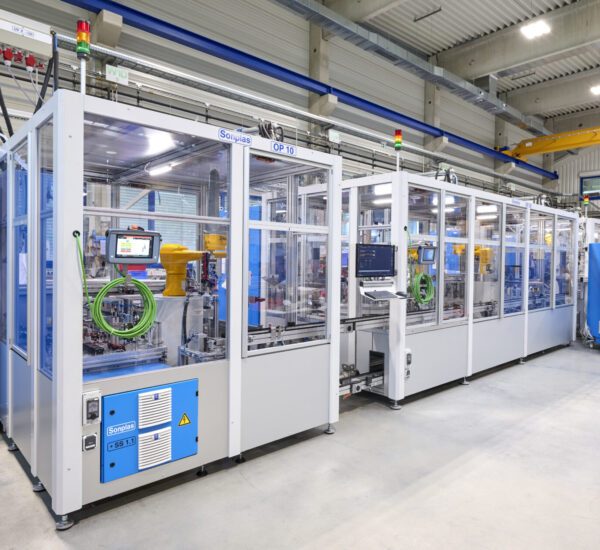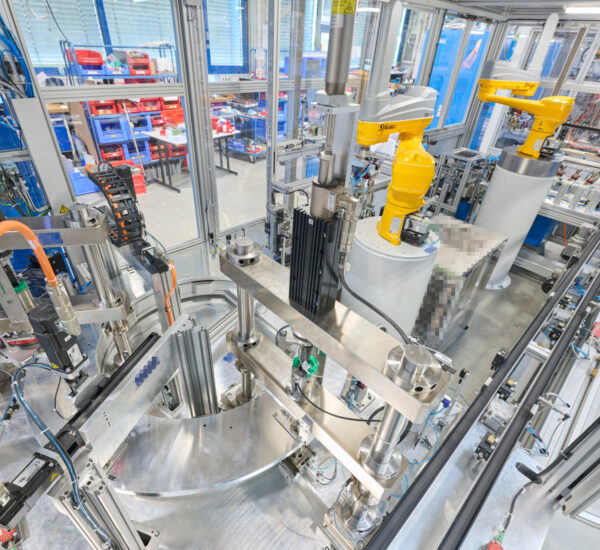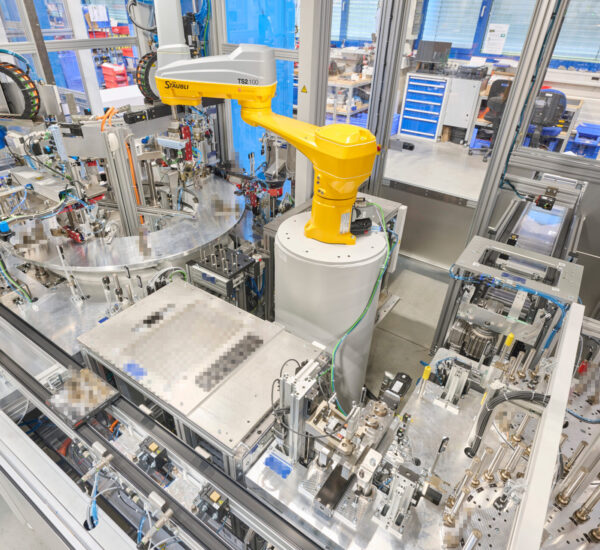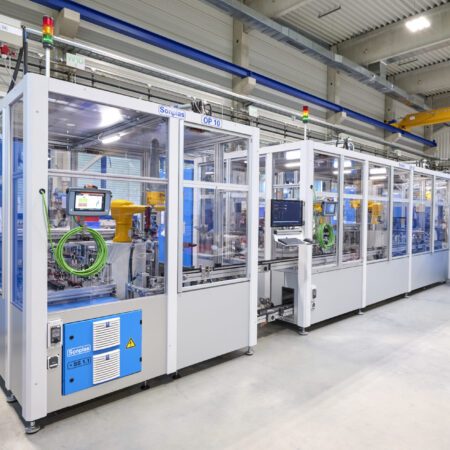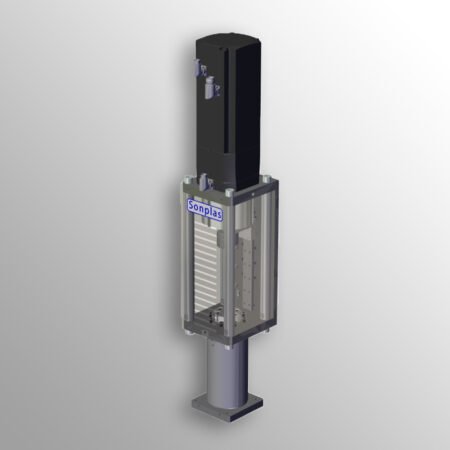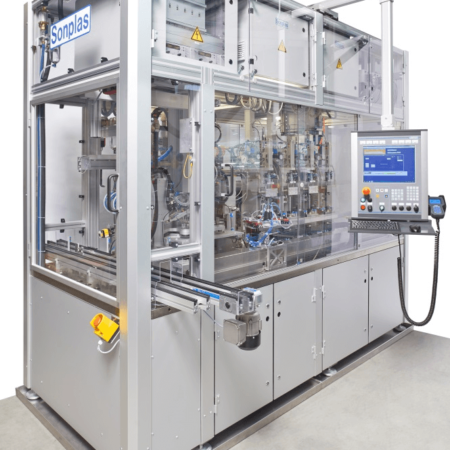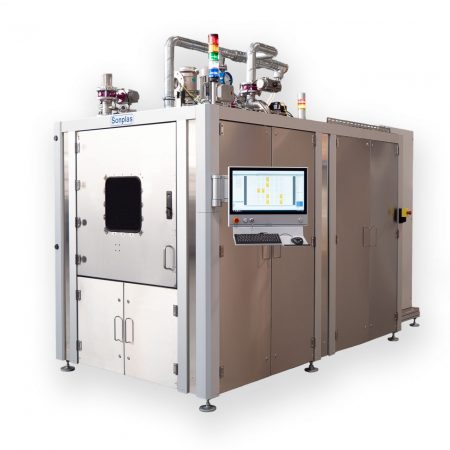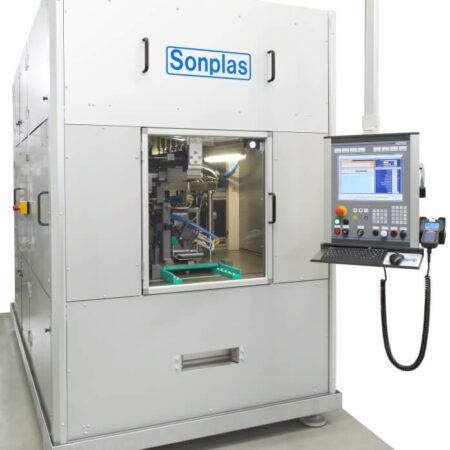For the fuel technology sector, Sonplas manufactures assembly systems & test benches for fuel components. We focus not only on new technologies such as hydrogen or methanol, but also continue to concentrate on gasoline and diesel fuels. Today, we are a leading manufacturer, thanks in part to the global service that we offer. Worldwide, several Sonplas injectors roll off the production line every second, and every second a high-pressure gasoline pump undergoes a Sonplas end-of-line test.
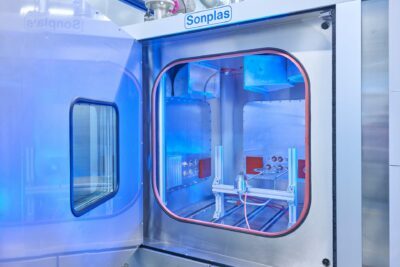
We provide assembly systems and test benches for fuel components from a single source, efficiently integrating both disciplines. With a proven network of carefully selected and reliable partners, users receive a comprehensive package and have only one point of contact with us. This streamlines communication, reduces organizational effort, and minimizes interface issues.
To test under real conditions, we use actual fuels and conduct tests while accounting for temperature influences. What matters is not just the expertise in execution, but also comprehensive consulting beforehand and support during acceptance. This is essential because our customers need to integrate their assembly systems and test benches for fuel components into their facilities. If required, we design the systems to comply with ATEX regulations. We can also provide test containers to ensure a safe testing environment.
We offer you the chance to test hydrogen-carrying components for functionality and durability at our test centre. To facilitate this, we have our own in-house fuel laboratory. Through feasibility studies and product testing, we expand our range of products and services for you.
We not only assist you in developing complete test benches and assembly systems, but we also optimize existing systems. We prioritize keeping conversion costs as low as possible. With a modular design, we can expand and retrofit the equipment at any time, such as when environmental conditions change. We can also remove units if they are surplus to requirement, resulting in significant cost savings for you.
We are not just your reliable partner for testing components; upon request, we can also assist you in developing your systems and components. Our technicians identify the most efficient solutions early in the product development process, particularly concerning material compatibility and seal selection.
Wir sind für Sie ein verlässlicher Partner für Montageanlagen & Prüfstände für Kraftstoffe!
Consulting and solutions from a single source
We manufacture assembly systems for fuel technology & test benches for fuel components. Are you from the automotive, off-highway, large engine, or aviation sectors? If so, we can provide you with modular test benches and assembly systems tailored to your specific needs. Our expertise in both areas allows us to offer comprehensive consulting and solutions from a single source.
Check everything precisely and safely
For the qualification of fuel injectors for gasoline, diesel, hydrogen, e-fuels, methane, LPG, CNG, methanol, kerosene, ethanol, and even ammonia, we offer the IAV Cross – Injection Analyzer by Sonplas. This device allows you to determine the injection rate through dynamic pressure increases in a fuel-filled measuring channel. The test bench can measure both injection rates and quantities individually and simultaneously, displaying the rate signal with high precision. As the system has no moving parts, maintenance is rarely needed, and it delivers consistent results. The measuring unit is powered by robust software, making it easy to operate. All relevant information is displayed clearly in real time. Additionally, you can connect the IAV Cross – Injection Analyzer by Sonplas to your test bench software via a software interface, allowing for seamless integration into a digital testing and development environment.
Contact us!
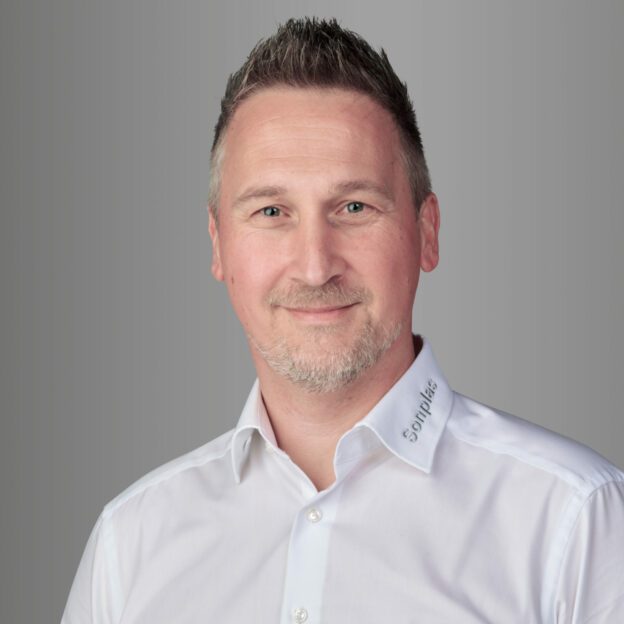

B.Eng.
Sales
+49 9421 9275-362
info@sonplas.de
Our products in use
Questions & Answers for Fuel Technology
To guarantee quality, fuel-contacting components in injection systems must be tested for performance and durability in industries like automotive, off-highway, large engines, and aviation. Key and typical processes include testing flow rate, leak tightness, spray pattern, measuring opening and closing times, as well as determining the injection rate and conducting tests under varying temperature conditions. This can also involve functional and endurance tests of both individual components and the entire system. To support this, we provide assembly systems and test benches for fuel applications.
The most important fuels include hydrogen, e-fuels, methane, LPG, CNG, gasoline, diesel, methanol, kerosene, and ethanol, as well as future fuels like ammonia. Despite the strong push for e-mobility in the automotive industry in recent years, traditional fuels like gasoline and diesel are still far from being phased out. Ultimately, it remains to be seen which form of future mobility will come out on top.
As the testing equipment for different fuels does not significantly differ, we have combined our expertise in fuel injection systems and provide our customers with a comprehensive range of solutions from a single source. We can tailor assembly systems and test benches for fuels to the specific medium, including those that must meet the European Union’s ATEX regulations for explosion protection.
These include:
- Valves
- Injectors
- Pressure regulators
- Distributor block
- Injection pumps
- Pre-feed pumps
- Pressure sensors
- Temperature sensors
- Recirculation fans
- Ejektors
Hydrogen and all hydrogen-based e-fuels can be produced in virtually unlimited quantities and burn much more cleanly compared to conventional gasoline and diesel. Only water vapor is produced during its conversion in the vehicle, which makes the push for CO2-neutral hydrogen particularly appealing from an ecological standpoint. However, the foundation for producing this fuel still needs to be established.
The goal of achieving less climate-damaging, CO2-neutral mobility can be accomplished using both battery-powered electric drives and alternative drive types and fuels, such as hydrogen engines, fuel cells, hybrid drives, gas drives, and e-fuels. It is essential to produce the fuels of the future as CO2-neutral as possible.
In the future, each mode of transportation will need the most efficient fuel tailored to its specific application. Gasoline and diesel engines are expected to remain the primary types of propulsion for the foreseeable future. They remain especially relevant for vehicles where alternative fuels are challenging or impossible to implement. In addition to aviation and shipping, this includes military vehicles, police and fire response vehicles, disaster control vehicles, agricultural and forestry machinery, as well as vehicles and equipment used in the construction industry.
